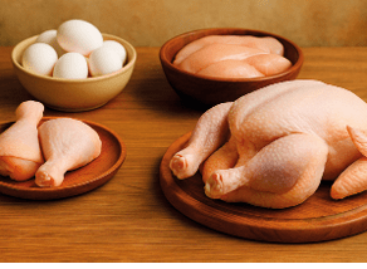The agricultural chambers of six countries jointly call on Brussels: end the impossibility of European farmers!
In addition to the Hungarian National Chamber of Agriculture, the agricultural chambers of five other countries strongly warn the decision-makers of the European Union not to destroy Europe’s agriculture.

(Photo: Pixabay)
The National Council of the Polish Chambers of Agriculture (KRIR), the Slovak Chamber of Agriculture and Food Industry (SPPK), the Hungarian National Chamber of Agriculture (NAK), the Agrarian Chamber of the Czech Republic (AKČR), the Lithuanian Chamber of Agriculture (ŽŪR) and the Cooperation Council of Agricultural Organizations of Latvia (LOSP) representatives took part in the extended meeting of the agricultural chambers of the Visegrad Group. The event on February 12-13, 2024 took place in Otrębusy near Warsaw. The meeting was attended by Janusz Wojciechowski, Commissioner for Agriculture of the European Commission, Czesław Siekierski, Polish Minister of Agriculture and Rural Development, and Patrick Pagani, Acting Secretary General of Copa-Cogeca. Farmers in the European Union are struggling with uncertainty and difficulties resulting from rising production costs and the war in Ukraine, and they expect support, not hardship, from the EU institutions. The overall goal of EU agriculture must continue to be to ensure food security for the population of the Union in a sustainable manner. It is essential to protect the EU’s internal market from the influx of products produced in unsustainable food systems.
The Commissioner for Agriculture highlighted the need for a significant increase in the crisis fund operating under the current Common Agricultural Policy, even from other sources
This could be a more effective help in such critical market situations than the current one. Minister Czesław Siekierski emphasized that it would be necessary to modify the goals of the Green Agreement, and a new approach to the Ukraine-EU trade agreement is needed. Facilitating the trade and export of Ukrainian goods – which the European Commission is working on – should not have negative consequences for individual sectors and agricultural markets of the EU. Mechanisms are needed to effectively protect the markets of the EU Member States, especially those of the frontline countries.
Protests by farmers continue in Europe, demanding concrete and workable solutions from Brussels for the agricultural sector
Farmers highlight challenges related to climate change, the competitiveness of farms, incomes, administrative burdens and generational renewal. Agriculture plays a decisive role in food security, and the crisis caused by the war in Ukraine further emphasizes its strategic importance. The participating countries also emphasized the need to strengthen the position of agriculture in the EU. All necessary measures must be taken to ensure that the further enlargement of the EU does not result in a decrease in the profitability of agricultural production, the depopulation of rural areas and the abandonment of agricultural activities in the Member States. The agricultural chambers of the V4 countries are planning a joint demonstration to stop import dumping in Ukraine on February 22 at the common Slovak-Polish-Czech border.
NAK
Related news
EU poultry meat rules are changing: the 12-week limit for “free-range” labeling is being relaxed during a pandemic
🎧 Hallgasd a cikket: Lejátszás Szünet Folytatás Leállítás Nyelv: Auto…
Read more >UBM may continue its international expansion
🎧 Hallgasd a cikket: Lejátszás Szünet Folytatás Leállítás Nyelv: Auto…
Read more >Related news
Festival buzz at the 60th anniversary EuroShop trade fair
🎧 Hallgasd a cikket: Lejátszás Szünet Folytatás Leállítás Nyelv: Auto…
Read more >Historic price reduction at ALDI
🎧 Hallgasd a cikket: Lejátszás Szünet Folytatás Leállítás Nyelv: Auto…
Read more >A stable compass in the Hungarian FMCG sector for 20 years
🎧 Hallgasd a cikket: Lejátszás Szünet Folytatás Leállítás Nyelv: Auto…
Read more >








